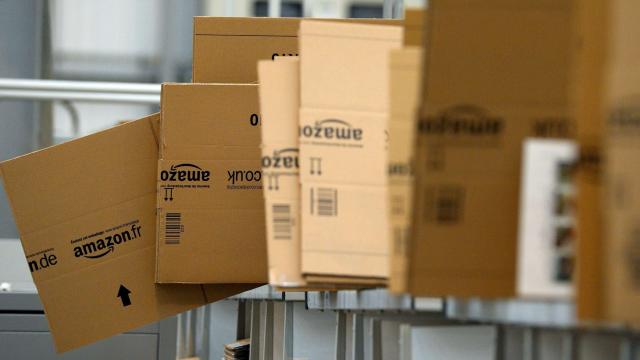Amazon is in hot water again over the thousands of defective and potentially hazardous products sold on its site. Today, the U.S. Consumer Product Safety Commission (CPSC) filed a complaint against the company in a bid to force the retailer to recall such items.
Specifically, the consumer safety regulator pointed to 24,000 faulty carbon monoxide detectors, flammable children’s pajamas, and 40,000 hairdryers sold without protections against shock and electrocution. The CPSC said in a statement that since these products pose a risk of serious injury or death, Amazon is legally responsible to recall them. The complaint, which was approved in a 3-1 vote, calls on the retailer to stop selling these products, work with the CPSC to enact a recall and directly notify customers, and offer a full refund.
To be clear, Amazon says it’s done that already. “As the CPSC’s own complaint acknowledges, for the vast majority of the products in question, Amazon already immediately removed the products from our store, notified customers about potential safety concerns, advised customers to destroy the products and provided customers with full refunds,” an Amazon spokesperson told Gizmodo in an email. “For the remaining few products in question, the CPSC did not provide Amazon with enough information for us to take action and despite our requests, CPSC has remained unresponsive.”
Amazon went on to say it had offered to “expand [its] capabilities to handle recalls for all products sold in our store, regardless of whether those products were sold or fulfilled by Amazon or third-party sellers” and wasn’t sure why the CPSC rejected that offer. For its part, the CPSC said in a press release that while Amazon had “taken certain action”, those actions were insufficient.
This isn’t a new problem. The CPSC’s complaint notes that consumers who buy products on Amazon may “reasonably believe they are purchasing products from Amazon” but that it “only explicitly identifies the role of third parties” in paragraph 16 of its Conditions of Use. The Wall Street Journal in 2019 conducted a lengthy investigation that found more than 4,000 items sold on the platform were declared unsafe or banned by federal agencies, or deceptively labelled.
Meanwhile, Wirecutter wrote in 2020 that the third-party seller system has effectively given rise to bogus counterfeits in just about every category. In many cases, consumers end up buying expired or counterfeit products as they’re unaware it’s not being sold by an official shop. Last September, CNN also discovered that dozens of Amazon Basics products had been reported as bursting into flames, only to still be sold on the site. Gizmodo has also found Amazon to be a minefield of scammy 5G products.
Legally, Amazon is not liable for fraudulent items sold by third-party sellers as it doesn’t technically sell the product — it just hosts the listing and is therefore protected by Section 230 as long as it’s reasonably responsive to takedown requests. However, the company said it seized and destroyed more than 2 million counterfeit products and blocked more than 10 million bad listings in 2020. Amazon also told Gizmodo that it’s offered the CPSC monthly reports in its Recall pledge, but that the agency had declined. It also contends that its messaging to customers used a template the agency that the CPSC had approved.
CPSC Chairman Robert Adler also released a statement to accompany the complaint. In it, Adler says that while he voted to approve the complaint, he “did so with great reluctance.” Adler further elaborated that the current CPSC model for product recalls is unsustainable, as “for every product which the CPSC determines a recall is necessary, a lengthy negotiation must first take place” of whether a platform is subject to its laws.
“To continue product-by-product is like using an eyedropper to empty the ocean — ineffective, inefficient, and frustratingly insufficient to protect consumers,” Adler writes. “The best solution to this problem would be for the CPSC and third-party platforms to work together to craft agreements that establish a framework for dealing with those products.”
Amazon says it agrees with Adler, but until something is actually hammered out, it pays to always check who’s actually selling a product and avoid buying certain products (i.e., food, cosmetics, anything with an expiration date) on the platform.
